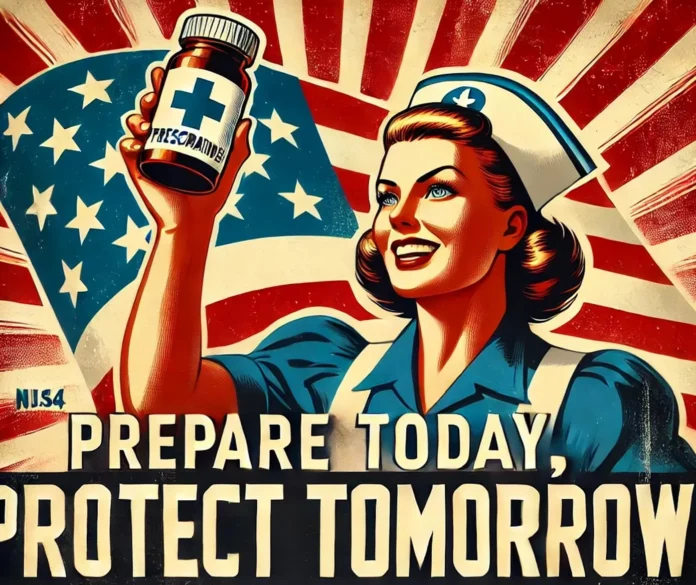As trade tensions continue to escalate between the United States and its global trading partners, the pharmaceutical industry is facing potential disruptions that could have far-reaching consequences for Americans. The current climate of uncertainty and unpredictability in the global market has raised concerns about the availability and affordability of essential medications, leading experts to warn of potential drug shortages and price increases.
The ongoing trade war between the US and China, in particular, has been a major cause for concern in the pharmaceutical industry. China is a major supplier of active pharmaceutical ingredients (APIs) – the raw materials used to make medications – for many US drug manufacturers. With tariffs and other trade barriers being imposed on Chinese imports, there is a real risk of disruptions in the supply chain for these crucial ingredients.
This could have a domino effect on the availability of medications in the US, as many drugs rely on these APIs for production. In fact, according to the Food and Drug Administration (FDA), around 80% of APIs used in US drugs are imported, with China being the largest supplier. Any disruptions in this supply could lead to shortages and price increases for medications that Americans rely on for their health and well-being.
But it’s not just the trade war with China that is causing concern. The US has also recently implemented tariffs on steel and aluminum imports from Canada, Mexico, and the European Union, which could have an impact on the pharmaceutical industry. These countries are major exporters of medical devices and equipment, which are essential for the production and delivery of medications. If these tariffs lead to higher costs for these imports, it could further drive up the prices of drugs for American consumers.
So, what can Americans do to prepare for the potential impacts of a trade war on their access to essential medications? One way is to take advantage of the current competitive market for prescription drugs and stock up on their medications before any potential disruptions occur.
With the rise of online pharmacies and the availability of generic alternatives, consumers now have more options than ever before when it comes to purchasing their medications. By shopping around and comparing prices, patients can find the best deals and potentially save money in the long run.
Another option is to talk to their healthcare providers about potential alternatives or substitutes for their current medications. In the event of a shortage or price increase for a particular drug, having a backup plan in place can help ensure that patients have access to the treatment they need.
Furthermore, it’s important for Americans to stay informed about the latest developments in the trade war and its potential impacts on the pharmaceutical industry. By staying updated, patients can be proactive and take necessary steps to ensure they have access to their medications.
The pharmaceutical industry itself also has a role to play in mitigating the potential impacts of a trade war. Companies can work to diversify their supply chains and reduce their reliance on a single source for APIs. This can help minimize the impact of any disruptions in the supply chain and ensure a steady flow of medications for patients.
In addition, pharmaceutical companies can also work with the government and other stakeholders to find solutions and mitigate the potential impacts of trade tensions on the industry. This could include lobbying for exemptions or waivers on certain tariffs or finding alternative sources for APIs.
In conclusion, the escalating trade tensions between the US and its trading partners have raised concerns about potential disruptions in the pharmaceutical industry. As a result, there is a real risk of drug shortages and price increases for essential medications. However, by staying informed and taking proactive measures, Americans can prepare for these potential impacts and ensure continued access to the medications they need. It is also important for the pharmaceutical industry to work towards finding solutions and minimizing the impact of trade tensions on the availability and affordability of medications.

